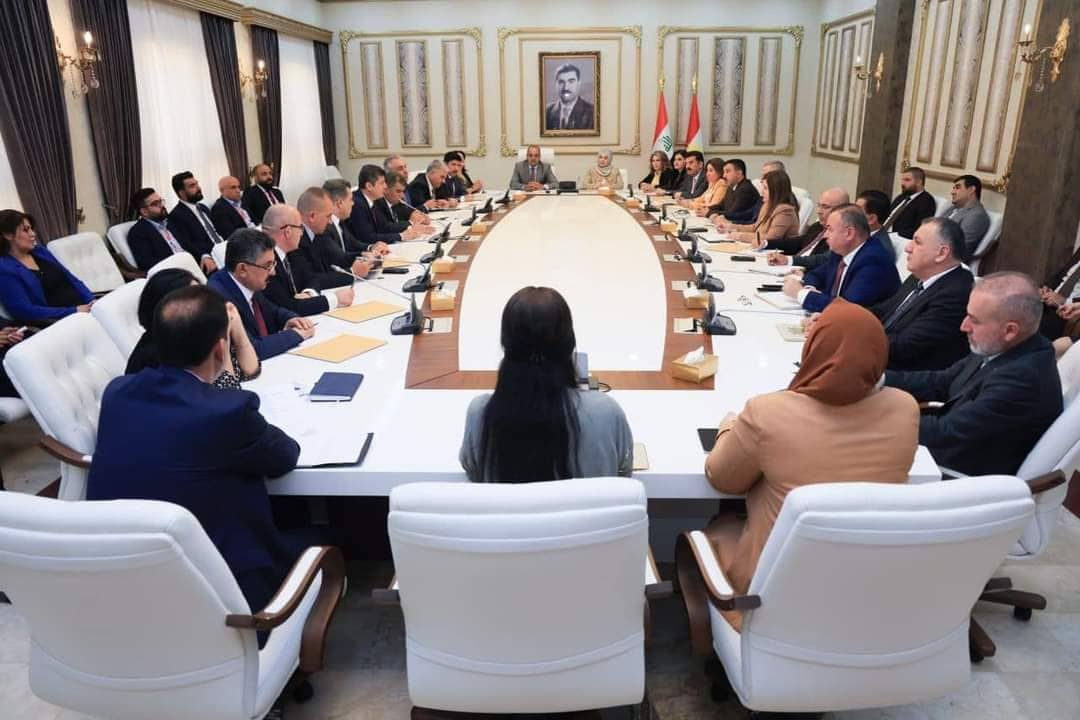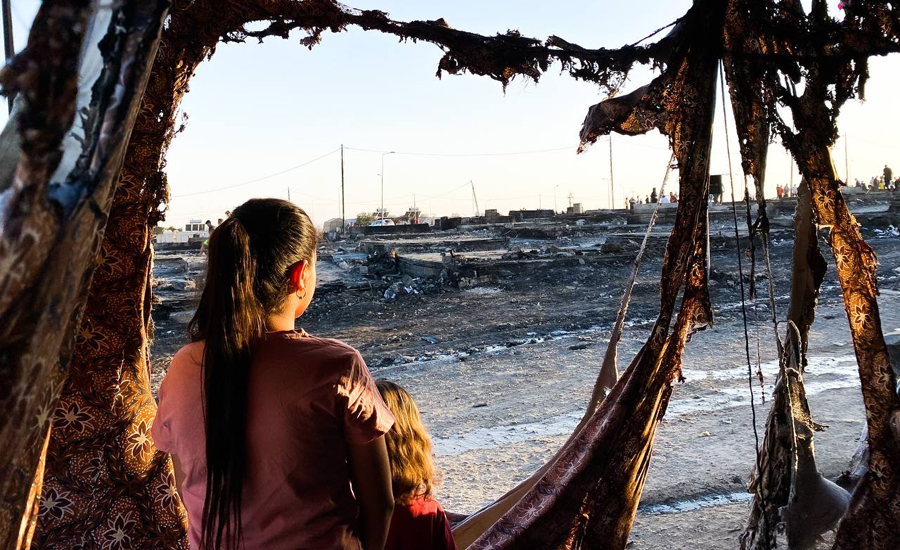A high-level meeting was held in Duhok Northern Province, home to the internally Displaced Persons IDPs, to discuss the "critical living conditions” of the IDPs, following the decline in aid by international organizations to the IDP camps up to 70%, statistics show.
The participants of the August 10 meeting, which included officials of the Duhok administration, members of the Iraqi parliament and the representative of the Kurdistan Regional Government KRG in Baghdad, agreed to mount pressure on the Iraqi government to improve aids to the dispalced.
Omar Kuchar, a member of the Iraqi parliament from the Islamic Union of Kurdistan faction, told KirkukNow: “The situation of the IDPs has deteriorated after the withdrawal of many organizations and the failure to distribute their aid."
“It was a very positive meeting. All the issues were discussed in detail, as well as the negligence of the Iraqi government towards the IDPs of Duhok province."
"We also discussed the problem of farmers who have not yet been compensated by the Iraqi government for using their lands as camps for the displaced," Kochar said.
"All the complaints and suggestions discussed at the meeting will be sent to the Iraqi government in a letter ... First of all, we will work on providing immediate assistance to improve their living conditions," he added.
The Barzani Charity Organization, currently oversees the IDP camps in both Duhok and Erbil provinces, attended the meeting.
Since ISIS takeover of large swathes of Iraq in June 2014 up to the end of the war against it in 2017, more than six million Iraqis have been displaced and migrated.
At present, out of a total of more than 1.1 million IDPs, over 600,000 tents in the IDP camps of the Kurdistan Region of Iraq KRI, the majority of them in Dohuk Northern Province, according to the statistics of the KRG and the International Organization for Migration IOM. They are reluctant to return home due to lack of stability, reconstruction and job opportunities.
Except for Ninewa province, all the IDP camps in other Iraqi provinces have been closed and their residents have been returned to their homes, except for the camps in the Kurdistan Region, which remained oepend according to an agreement between Baghdad and Erbil.
According to an agreement between the federal government and the Erbil-based KRG that dates back to the beginning of the displacement wave during the war against the Islamic State of Iraq and Syria ISIS in 2014, the regional government provides the IDP camps electricity, paid for by the Iraqi government, in addition to other basic services like water and other supplies.

Dian Jaafar, Director of the Dohuk Office for the Joint Crisis Coordination Center JCC of the Ministry of Interior under the KRG assigned to supervise IDP camps, said, “This meeting came after we sent several letters to the Iraqi Ministry of Migration and Displacement on the issue of IDPs, but they have not responded. The main purpose of this meeting was to put pressure on the federal government to stop ignoring the IDPs in Duhok."
The main purpose of this meeting was to put pressure on the federal government to stop ignoring the IDPs in Duhok
"About 70% of the contracts of the organizations to help the refugees have been terminated. Some of them have moved to Europe because of the war in Ukraine, others because the Iraqi government itself has said that the financial situation is good," he said.
“If Baghdad does not help us, the situation of the refugees will be very difficult and bad,” he added. “The solution is only with Baghdad.”
According to an investigation published last week, the IDPsare reluctant to eat the food boxes distributed by the Iraqi government according to a coupon, only twice in current year, saying the food quality is poor.
The Iraqi government's poor food quality comes at a time when international organizations have reduced or suspended aid to IDPs in the Kurdistan Region, including the World Food Program (WFP) which recently has decided to suspend the monthly financial assistance to IDPs.
Earlier, Iskandar Mohammed Amin, director of the Iraqi Migration and Refugees Office in Duhok province, told KirkukNow that the ministry is aware of the situation of the refugees and all the letters sent to the ministry have been delivered.





